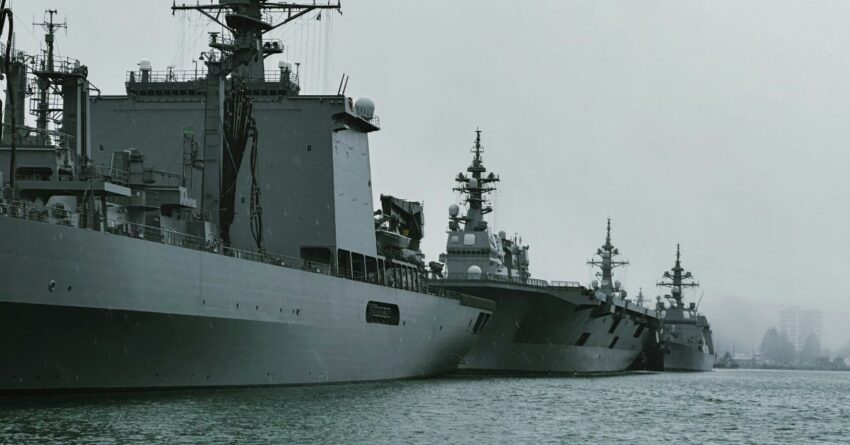Russia and China conducted joint military drills in the Sea of Japan, just days after President Donald Trump announced the deployment of U.S. nuclear submarines in response to nuclear threats from Moscow.
Russia and China

The “Maritime Interaction-2025” exercises, planned before Trump denounced remarks from former Russian President Dmitry Medvedev as “foolish and inflammatory,” underscore the strengthening military cooperation between Beijing and Moscow. The timing, however, highlights growing tensions between Washington and the Kremlin. Retired U.S. Vice Admiral Robert Murrett said that Trump’s announcement may represent only a limited shift in America’s nuclear posture. “What may have happened in response to the untoward remarks by Medvedev pales in comparison to some of the nuclear posturing that took place between the U.S. and Russia throughout the Cold War,” he said. “Having said that, any shift in nuclear posture should be carefully calibrated, and act as a deterrent and not a prelude to unchecked increased tensions.”
Russia’s ‘no limits’ partnership

Before Russia’s full-scale invasion of Ukraine, Moscow and Beijing signed a “no limits” partnership, deepening military and economic ties. Although China has claimed neutrality in the war, its cooperation with Russia has expanded, with annual drills forming a key part of their relationship. The current exercises are being held near the Russian port of Vladivostok. Russian and Chinese officials said the drills involve joint detachments of warships, including a large Russian anti-submarine vessel, two Chinese destroyers, diesel-electric submarines from both countries and a Chinese submarine rescue ship.
Response to Trump

According to China’s Defense Ministry, four Chinese vessels are participating, including the guided-missile destroyers Shaoxing and Urumqi. The drills include artillery fire, anti-submarine warfare training, air defense operations and joint search and rescue missions. The exercises follow Trump’s comments that he had ordered U.S. nuclear submarines deployed in response to Medvedev’s remarks suggesting the possibility of nuclear conflict. Medvedev, now deputy chairman of the Federation Council, invoked the Soviet-era “Dead Hand” retaliatory strike system in a veiled threat against the United States. Trump did not clarify whether the submarines were nuclear-powered or nuclear-armed, nor did he reveal their locations, which remain classified. His announcement added to concerns over heightened tensions between Washington and Moscow.
Japan’s Ministry of Defense

Japan’s Ministry of Defense has warned that China’s growing military cooperation with Russia poses serious security risks to the region. Meanwhile, Medvedev has been absent from social media since July 31, and Russian media outlets have largely avoided commenting on his exchange with Trump, raising speculation about a pause in the war of words.
The post Russia and China begin war games amid nuclear threat appeared first on Knewz.
Click this link for the original source of this article.
Author: Joshua Wilburn
This content is courtesy of, and owned and copyrighted by, https://knewz.com and its author. This content is made available by use of the public RSS feed offered by the host site and is used for educational purposes only. If you are the author or represent the host site and would like this content removed now and in the future, please contact USSANews.com using the email address in the Contact page found in the website menu.







